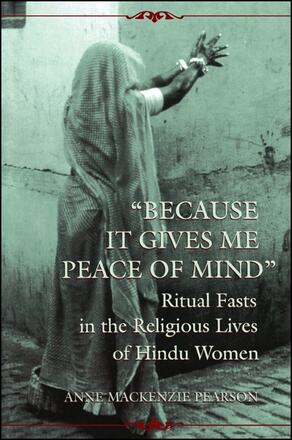
Because It Gives Me Peace of Mind
Ritual Fasts in the Religious Lives of Hindu Women
Alternative formats available from:
Explores the history and nature of vrats (ritual fasts) in text and practice, and the roles these rites play in the lives of Hindu women in North India.
Description
This is the first book-length study that explores the history and nature of vrats—votive fasting rites—the role these rites play in the religious lives of Hindu women in North India, and the meanings these women attribute to them. By placing vrats within the context of various Hindu religious categories such as concepts of time; types of religious activities; goals; notions of purity and pollution; auspiciousness and inauspiciousness, the book demonstrates how the concept of vrat provides a lens to the Hindu worldview. Accordingly, it offers insight into the nature of Hindu popular religion in general and women's religion in particular.
Drawing extensively on the personal narratives of individual women, this study subtly corrects the prevailing view that all women observe vrats solely for the benefit of others. The author shows that Hindu women's sense of duty and obligation to ensure the well-being of their families through the performance of vrats explains only part of the appeal of these rites. The data demonstrate that women also perform vrats for the social, physical, psychological, and spiritual benefits. Not only do vrats provide an avenue for the expression of profound spiritual yearnings, but some women use vrats as a way to gain a measure of control over their own lives, a source of empowerment in an environment in which women frequently lack control and self-determination.
Anne Mackenzie Pearson is a part-time instructor at both McMaster University and Wilfrid Laurier University.